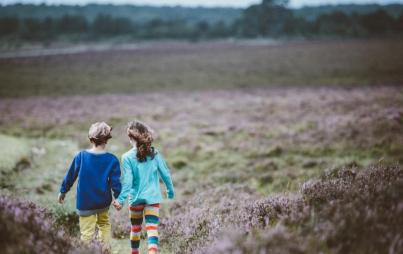
Photo by Jenny Russell on Unsplash
I went to work at a Boston middle school convinced that I needed to be as perfect as I possibly could.
Little did I know that in practice, the opposite would be the case.
Kids need calm in any sort of crisis; I am anything but. However, I wish I’d known how unrealistic it was to throw myself into my work while also putting pressure on myself to be as cool as could be. But I learned quickly that being calm — genuinely or feigned — couldn’t solve what students brought with them to school each day. Sometimes it was breaking up with the boyfriend they’d started dating four days ago. Some days it was worrying about family back home in Puerto Rico in the destruction of Hurricane Maria. Sometimes it was just that math class was hard.
For whatever reason, my homeroom had the kids most likely to cry. My half-hearted attempt at an unemotional front didn’t last long. So I started doing the same thing I’d do for my mom, my roommate, or anyone else who was upset: I’d hear them out. I’d connect them to resources beyond me when I could. I’d ask for help in helping them.
And then I did what some people might consider unprofessional: I opened up to them as well.
I struggle with a variety of mental health conditions. I’m grateful that I’ve learned how to, sometimes, express and process my emotions in healthy, productive, not self-destructive ways.
You Might Also Like: How I Exposed My Yoga Teacher's Abuses On Facebook
But sometimes it feels like we need to leave our most authentic selves at home to succeed in the workplace.
Is this fragmentation of the self really helpful for our students, never mind for us?
I was in the unusual situation where “role model” and “mentor” were literally in my job description. But I also know that empathy can help heal. I shared some of my experiences about comparing myself to others with my students in the hopes that my students see me as a role model who also had feelings and could relate to them.
Kids notice everything — the subtle movements and emotions of not only their classmates but also their teachers and other adults in their school. If they asked, I’d sometimes admit if I wasn’t feeling OK — even though I was supposed to be perfectly put together.
On my last day, my students surprised me, as they often did. Five different kids mentioned MY bad days in their little goodbye notes.
“You helped us even when you had bad days,” one wrote. “You were nice even when things were hard,” said another.
I was ready to cry along with them.
I’m still pretty shaky on the whole “role model” thing, and I think I’ll be for a while. But I know that I don't have to be perfect to reach my students. And often, they're the ones teaching me.








